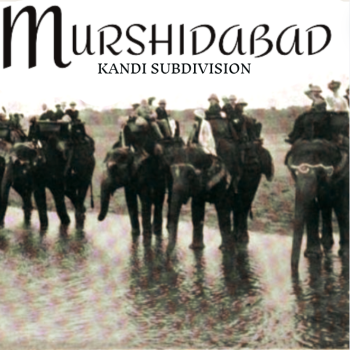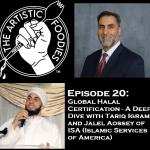 |
|
The spirit behind the letters
|
What is Islam? Is Islam an ancient Arab warrior cult based on the worship of a pagan warrior god, whose headquarters lie in the rocks and stones of the Ka’ba in Mecca? Is Islam a meaningless set of strange and exotic rituals, including walking around a stone cube and throwing smaller stones on a bigger one? Is Islam a faith that calls for either conversion or conquest of all those who choose not to submit to its will?
What is Islam? Is Islam a set of dietary laws and rules of dress? Is Islam composed of archaic and restrictive guidelines that are out of touch with modern reality? Is Islam ornate houses of worship and beautifully fabricated Arabic calligraphy? Is it the printed pages of the Qur’an? Islam is none of these.
Islam is the path of return to the Creator, from whom we were separated by our sin and transgression against ourselves. It is the connection to the Divine that each soul yearns to possess and spends its entire life perusing, rightly or wrongly. It is the fuel with which the Divine spark within each one of us is lit and kindled into a raging fire, giving us comfort, warmth, and light. Islam is our guiding star by which we lead our caravan through the dark paths of the desert devoid of sunlight, and it is the cool shade from the cloud that follows us on our desert journey by day.
Yet, Islam – while it is indeed all of these things – does have a form, an outward expression. There are things in which the believer is supposed to believe. The Qur’an does have rules and regulations; it does have a whole set of “dos and don’ts.” The Prophet Muhammad (pbuh) did show us how many raka’as to pray for Fajr, Zuhr, Asr, Maghrib, and Isha prayers. The Prophet (pbuh) did teach us what to say before going into the bathroom and what to say when coming out. There is a certain direction toward which one prays the five ritual daily prayers.
Yet, are these things the essence of Islam? A great many of our Muslim brethren and sisters have transformed Islam thus, and as a result, they have choked out the breath of the Divine Light in our faith and have extinguished the light that is supposed to guide us on our sojourn of separation from God on earth. For example, a dear friend of mine was praying at a local mosque and another brother noticed that he moved his finger in the tashahhud incorrectly. After my friend finished the prayer, the brother told him that he moved his finger incorrectly and his prayer does not count.
This disturbed my friend, and after telling me the story, disturbed me as well. Why would the prayer not count? Is moving the finger in the tashahhud a certain way one of the fundamentals of the prayer? While I do not doubt the sincerity of the brother, how do you think telling my friend that his prayer does not count made him feel? Or how about a non-Muslim who is seriously considering converting to Islam except for one problem: he is left-handed, and he happened to read the multitude of hadith praising the use of the right hand. Yet, using his right hand to eat, for instance, would be extremely difficult for him. Should he forget about becoming a Muslim?
Or how about taraweeh prayers? Yes, the month of Ramadan is the “month of the Qur’an” and it is wonderful to stand in superrogatory prayers and enjoy the recitation of God’s Word. Yet, should the imam take so long that the congregation forgets about God’s Word because all they can think of is the pain in their feet? These may be extreme examples, but they are indicative of a pattern I see all too often with many Muslims: harping heavily on the technicalities while setting aside the greater purpose of the faith.
Since it is Christmas, it is fitting to mention that Jesus Christ first spoke out against such a religious pattern:
Ye have heard that it was said of them of old time, Thou shalt not kill; and whosoever shall kill shall be in danger of the judgment: But I say unto you, That whosoever is angry with his brother without a cause shall be in danger of the judgment: and whosoever shall say to his brother, Raca, shall be in danger of the council: but whosoever shall say, Thou fool, shall be in danger of hell fire. Therefore if thou bring thy gift to the altar, and there rememberest that thy brother hath ought against thee; Leave there thy gift before the altar, and go thy way; first be reconciled to thy brother, and then come and offer thy gift (Matthew 5:21-24)
Christ continued to his disciples:
Ye have heard that it was said by them of old time, Thou shalt not commit adultery: But I say unto you, That whosoever looketh on a woman to lust after her hath committed adultery with her already in his heart….Ye have heard that it hath been said, An eye for an eye, and a tooth for a tooth: But I say unto you, That ye resist not evil: but whosoever shall smite thee on thy right cheek, turn to him the other also. And if any man will sue thee at the law, and take away thy coat, let him have thy cloak also. And whosoever shall compel thee to go a mile, go with him twain. Give to him that asketh thee, and from him that would borrow of thee turn not thou away. Ye have heard that it hath been said, Thou shalt love thy neighbour, and hate thine enemy. But I say unto you, Love your enemies, bless them that curse you, do good to them that hate you, and pray for them which despitefully use you, and persecute you; (Matthew 5:27-44).
Jesus wanted to take his disciples to a higher level of understanding of their faith. He wanted to free them from the shackles of the legalism that choked off their spirituality. He told them these things so that they “may be the children of your Father which is in heaven: for he maketh his sun to rise on the evil and on the good, and sendeth rain on the just and on the unjust” (Matthew 5:45). He wanted them to be “perfect, even as your Father which is in heaven is perfect” (Matthew 5:48).
Christ returns in the Qur’an with the very same message, although Christ does not speak one word:
True piety does not consist in turning your faces toward the east or the west – but truly pious is he who believes in God, and the Last Day, and the angels, and revelation, and the prophets; and spends his substance – however much he himself may cherish it – upon his near of kin, and the orphans, and the needy, and the wayfarer, and the beggars, and for the freeing of human beings from bondage; and is constant in prayer, and renders the purifying dues; and [truly pious are] they who keep their promises whenever they promise, and are patient in misfortune and hardship and in time of peril: it is they that have proved themselves true, and it is they, they who are conscious of God. (2:177)
The verse refers to the changing of the qiblah from Jerusalem to Mecca after the Prophet migrated to Medina. It was a big scandal at the time, and it even caused some of the Muslim faithful to doubt the Prophet’s veracity. Then came God with this verse to remind the faithful that the particular direction in which one prays is not what is truly important; that “true piety does not consist in turning your faces toward the east or the west.” I understand this to mean that God is telling us not to harp on the particulars at the expense of more important things.
Thus, don’t worry about the way one moves his or her finger in the tashahhud. It is not a crime if you happen to enter the mosque with your left foot. You won’t go to hell if you pick up that burrito with your left hand. It makes no sense in prolonging taraweeh prayers to the point that no one will want to come to the mosque during Ramadan any more. Once during the Fajr prayers, the Prophet Muhammad (pbuh) suddenly finished the prayer much more quickly than normal. When asked why, he said that he heard a baby crying and wanted to hurry and finish so that the child’s mother can go back home and tend to the baby. If that were to happen today, the mosque leader would tell the congregation not to bring their children to the mosque (something I have actually heard being said).
This is not to say that the particulars are totally unimportant. No. There is an outward form to our religion, and it is important. Otherwise, why would the Qur’an and the Prophet (pbuh) bother to explain it to us? Why would the Prophet (pbuh) tell us which prayers to say when, or how many raka’as are prayed when, or how long to fast during Ramadan. Verse 2:177 does outline the things in which Muslims are supposed to believe ( i.e., God, the angels, prophets, revelation, etc.). The verse does mention that “true piety” include praying and paying zakat. Jesus Christ never told his disciples that they no longer had to follow Jewish law:
Think not that I am come to destroy the law, or the prophets: I am not come to destroy, but to fulfill. For verily I say unto you, till heaven and earth pass, one jot or one tittle shall in no wise pass from the law, till all be fulfilled. Whosoever therefore shall break one of these least commandments, and shall teach men so, he shall be called the least in the kingdom of heaven: but whosoever shall do and teach them, the same shall be called great in the kingdom of heaven. For I say unto you, that except your righteousness shall exceed the righteousness of the scribes and Pharisees, ye shall in no case enter into the kingdom of heaven. (Matthew 5:17-20)
I believe that we should follow the rules to the best of our abilities and should not “break one of these least commandments” and “teach men so.” But we should not transform the rules into the faith itself. We should not abandon the spirit of the law for the letter of the law. Otherwise, we reduce Islam to a rule book, and it becomes a spiritual dustbin, devoid of any connection to our Lord. It is akin to taking the Qur’an as we know it today and removing all the beautiful verses that describe God, His Majesty, the beauty of His creation, the vivid imagery of the Last Day, of Paradise, and of Hell, the verses that give us prayers to utter, and the stories of the Prophet of old, and leaving just the ones that talk about the rules. It would be a most deficient sacred text.
When I was in college, a friend of mine and I were sitting in the small prayer room in the Alumni Union of Marquette University when a sister walked in to pray. She did not wear hijab (outside of prayer), and after she finished, my friend had suggested to the sister that she wear hijab. I – suffering from the fevers of fundamentalism – angrily and arrogantly chimed in that the sister knows the rules and she should know better. The sister said nothing and told us “Khoda Hafiz” before walking out. Of the many stupid things I have done in my life, this is one I regret the most.
What did I know about that sister? Who was I to criticize her in the way that I did? I was so focused on her not wearing hijab – something which was none of my business – that I did not see her for who she was: my sister in faith, someone who God says was supposed to be my wali and I her wali. I should have had my foot shoved in my mouth. Yet, that is the danger of focusing on the particulars of the faith while neglecting its larger purpose. It decimates our spirituality and renders the heart a dry, desolate place. It ruins Islam altogether, and Islam is the most beautiful gift – after the gift of life – that God has ever given to us. How could we have to audacity to do such a thing?
Hesham A. Hassaballa is a Chicago physician and writer. He is the co-author of “The Beliefnet Guide to Islam,” published by Doubleday in 2006. His blog is at godfaithpen.com.















